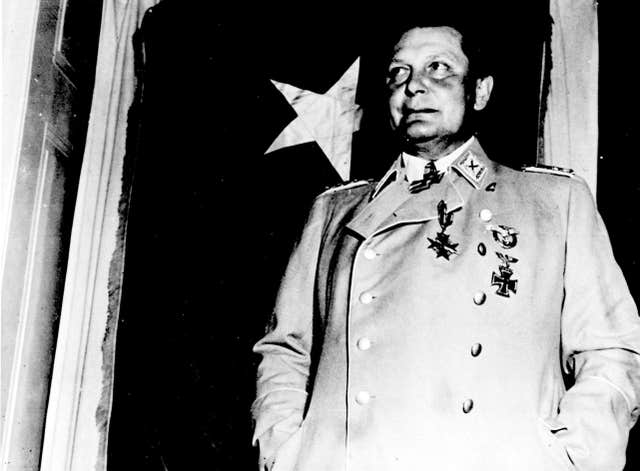Cambridge museum to surrender 19th century painting stolen by Nazis
The 1862 work La Ronde Enfantine depicts a forest scene and was stolen from Robert Bing’s apartment in occupied Paris because he was a Jew.

A Cambridge museum will surrender a 19th century painting stolen by the Nazis to the descendants of its original Jewish owner on the advice of a Government panel.
The Spoliation Advisory Panel, a body of judges and historians that investigates claims for Nazi loot, found the oil landscape by French realist Gustave Courbet was seized from Robert Bing in occupied Paris in 1941 because he was a Jew.
It recommended in a 19-page report that the University of Cambridge’s Fitzwilliam Museum should return the painting to Mr Bing’s descendants.
A spokesperson for the Fitzwilliam confirmed it will follow the recommendations.

The 1862 work La Ronde Enfantine depicts a forest scene and was taken from Mr Bing’s apartment in May 1941 by two men from the Einsatzstab Reichsleiter Rosenberg (ERR), a German task force responsible for acquiring cultural loot in occupied lands.
Mr Bing went on to join the French Resistance and receive the Croix de Guerre medal.
“This is a deliberate seizure by the German authorities from a Jewish citizen of France with the diversion of the work of art to Nazi leaders,” the report reads.
“No other reason for seizure other than the Jewishness of Mr Bing has appeared to explain this seizure.”
The painting was earmarked for the personal collection of Hermann Goering, one of Adolf Hitler’s leading henchmen who commanded the Luftwaffe and plundered property worth hundreds of millions of pounds during the war.
Goering at one point offered to swap it with Joachim von Ribbentrop, Hitler’s foreign minister, only for the deal to fall through because either von Ribbentrop or his wife “disliked the work”.

The Fitzwilliam suggested to the investigation that at the end of the war Allied soldiers found the painting hidden in secret tunnels near the Nazi elite’s retreat at Berchtesgaden in Bavaria, though this is disputed by Mr Bing’s descendants.
The trail then runs cold until 1951, when now-defunct London art dealer Arthur Tooth and Sons acquired the painting from Kurt Meissner – a Swiss dealer suspected by American authorities of looting – after its authenticity was verified by French expert Andre Schoeller, another suspected looter.
It was bought that year by the Very Revd Eric Milner-White, dean of York, who in turn donated it to the Fitzwilliam, where it has remained as part of its collection of 2,000 paintings.
It is currently in storage.
In its conclusion, the panel said: “This recommendation implies no criticism of the museum or the original donor, the Very Reverend Eric Milner-White, who have acted honourably and in accordance with the standards prevailing at the time of acquisition and since.
“The museum has cared for the work so that it can now be restored to the heirs of the original owners.”
The painting’s value is not known but a number of Courbet’s works have sold at auction for six-figure sums.
The Fitzwilliam spokesperson added: “The Spoliation Advisory Panel convened by the Secretary of State DCMS recommends that La Ronde Enfantine by Gustave Courbet currently in the possession and legal ownership of the Fitzwilliam Museum be restituted to the Mondex Corporation representing and on behalf of the heirs of Robert Bing.”




